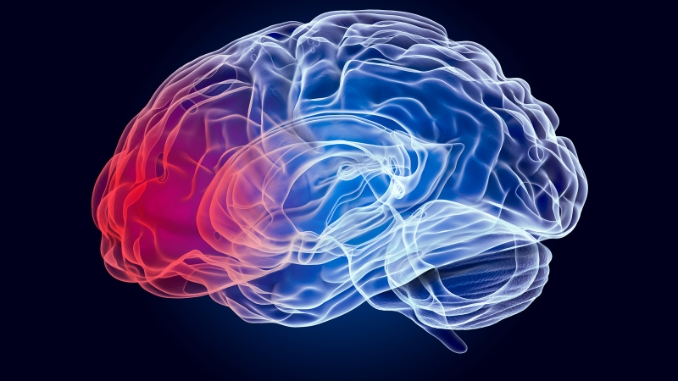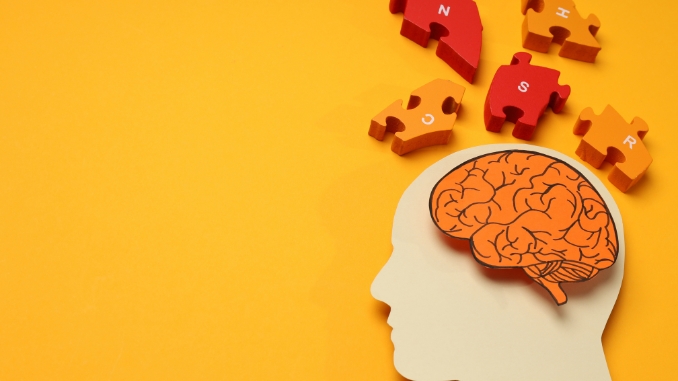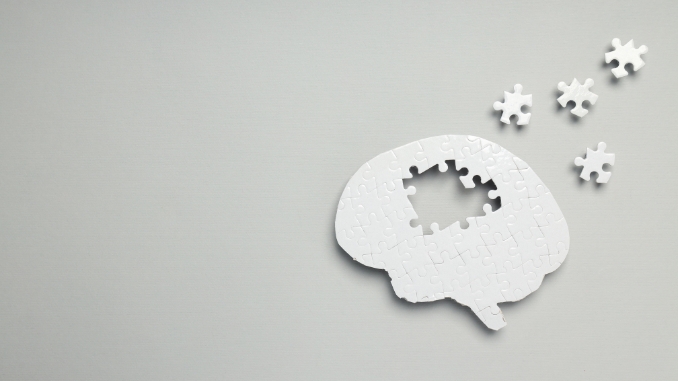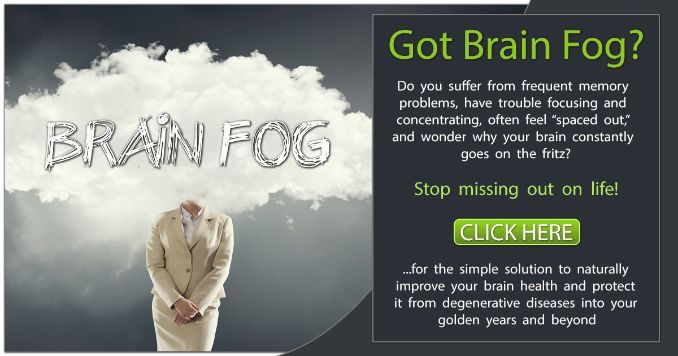Is Dementia a Mental Illness? Navigating the Distinct

Last updated on April 3rd, 2025 at 06:04 pm
Dementia is undeniably an alarming and growing global health concern, with over 55 million cases in 2021, projected to reach 139 million by 2050 due to aging populations. It presents substantial challenges, impacting health, finances, and emotional well-being. As the condition progresses, affected individuals increasingly rely on others for their basic needs. So, to answer the question of many people; Is dementia a mental illness?
Dementia is not categorized as a mental illness but as a neurocognitive disorder, primarily affecting cognitive functions. Increased awareness, research, and support are urgently needed to address this pressing public health issue.
What is Dementia?

A prevalent misunderstanding regarding dementia is the misconception that it falls under the classification of mental illness, whereas it is, in fact, a neurological disorder. Mental illnesses, also known as mental disorders or psychiatric disorders, primarily affect a person's thoughts, emotions, and behaviors. Common mental illnesses include depression, anxiety disorders, schizophrenia, and bipolar disorder.
Dementia, on the other hand, is a complex and progressive neurological disorder characterized by a range of cognitive and functional impairments. Contrary to the misconception that dementia is a mental illness, it primarily affects the brain's structure and function. The condition results in a gradual decline in a wide range of cognitive abilities. Now that you know whether dementia is a mental illness, let's delve into the causes of dementia.
Causes of Dementia
Dementia can result from various underlying causes, and these causes are often associated with specific types or subtypes of dementia. Some of the common causes of dementia include:
1. Alzheimer's Disease
The most common ground of dementia, accounting for most cases, is Alzheimer's disease. It is characterized by the accumulation of irregular protein deposits (tau tangles and amyloid plaques ) in the brain, leading to progressive cognitive decline.
2. Vascular Dementia
Vascular dementia is caused by decreased blood supply to the brain, typically due to conditions such as strokes, small vessel disease, and other vascular issues. It often results in cognitive impairment, especially if there have been multiple small strokes.
3. Lewy Body Dementia
Lewy body dementia is described by abnormal protein deposits called Lewy bodies in the brain. This type of dementia shares some symptoms with both Alzheimer's disease and Parkinson's disease. It can lead to cognitive fluctuations, visual hallucinations, and motor symptoms.
4. Frontotemporal Dementia (FTD)
FTD is a group of rare brain conditions that largely affect the frontal and temporal lobes of the brain. It can lead to changes in personality, behavior, and language abilities. FTD has several subtypes, each with distinct features.
5. Parkinson's Disease Dementia
Some individuals with Parkinson's disease are prone to developing dementia as the disease progresses. This form of dementia is characterized by both motor symptoms and cognitive decline.
6. Huntington's Disease
Huntington's disease is a hereditary genetic disorder that leads to dementia along with movement disturbances. It typically has an earlier onset, often in mid-adulthood.
7. Creutzfeldt-Jakob Disease (CJD)
CJD is a rare and briskly progressive neurodegenerative disorder caused by abnormal proteins called prions. It can lead to cognitive decline, muscle stiffness, and other neurological symptoms.
8. Normal Pressure Hydrocephalus (NPH)
NPH is a disease characterized by the buildup of cerebrospinal fluid in the brain's ventricles. It can cause symptoms similar to dementia, including difficulty walking, urinary incontinence, and cognitive changes.
9. HIV-Related Dementia
Advanced stages of HIV infection can lead to cognitive impairment and dementia, which is sometimes referred to as HIV-associated neurocognitive disorder (HAND).
10. Traumatic Brain Injury (TBI)
Severe head injuries, such as those sustained in accidents or sports-related injuries, can lead to long-term cognitive impairments and may result in a dementia-like condition.
The Distinct Dementia Symptoms
Dementia can manifest through a variety of signs and symptoms, and the specific presentation may vary depending on the underlying cause and stage of the condition. However, there are several distinct signs commonly associated with dementia. These include:
1. Memory Loss
Memory impairment is a common early sign of dementia. Individuals may not only struggle to remember recent events, but they can also have difficulty recalling names, faces, and details of their own past. They may repeat the same questions or stories within a short span of time. This irreversible condition occurs in severe and moderate stages.
2. Difficulty with Communication
People with dementia often have trouble finding the right words to express themselves. They may have difficulty following conversations, and their speech may become less coherent over time. As communication becomes challenging, individuals may withdraw from social interactions, leading to feelings of isolation.
3. Impaired Judgment and Problem-Solving
Dementia can affect an individual's ability to make appropriate decisions and solve problems. This can manifest as poor financial choices, an inability to plan daily activities, difficulty in understanding cause-and-effect relationships, and often causing aggravated mental health problems.
4. Disorientation
Individuals with dementia may become disoriented regarding the time, place, and date. They might not recognize familiar surroundings, even in their own home. This disorientation can lead to confusion and fear.
5. Reduced Concentration and Attention
Dementia can lead to difficulty sustaining attention to tasks. Individuals may start activities but not finish them due to distractions or forgetfulness. This can result in incomplete chores or activities of daily living.
6. Mood and Behavioral Changes
Common mental disorders and dementia share many of the same symptoms. Dementia often brings mood swings, irritability, and agitation. Individuals may become frustrated when they cannot express themselves or understand others. They may also exhibit aggressive behavior, which can be challenging for caregivers. Depression is the most common mental disorder in individuals with dementia and requires appropriate management.
7. Loss of Motor Skills
As dementia progresses, motor skills decline, affecting an individual's ability to perform routine tasks like dressing, grooming, and feeding themselves. Fine motor skills deteriorate, making tasks like buttoning clothes or using utensils increasingly challenging.
8. Difficulty with Everyday Tasks
Dementia interferes with the ability to perform everyday tasks independently. Cooking, cleaning, managing finances, and even using household appliances can become overwhelming and potentially unsafe.
9. Repetition
Repetitive behaviors, questions, or statements are common in dementia. Individuals may ask the same question repeatedly, engage in the same activity over and over, or repeat the same stories without realizing they've already shared them.
10. Language Problems
Difficulty finding the right words in conversation and repeating the same phrases or stories during a single conversation.
11. Difficulty with Abstract Thinking
Struggling to plan or organize tasks, such as arranging a schedule or following a recipe. Individuals can also experience difficulty in understanding abstract concepts or handling complex tasks.
12. Personality Changes
Personality changes can be distressing for both individuals with dementia and their loved ones. Interests and preferences may shift, and individuals may become less social or more withdrawn than before. Long-held beliefs and values may evolve.
It's important to note that the specific signs and impact can differ depending on the kind of dementia and the individual. Additionally, these signs typically develop gradually and may not all be present in the early stages of the condition. If someone is experiencing these signs, especially if they interfere with daily life, it is crucial to seek a thorough medical evaluation and diagnosis by a healthcare professional. Early detection and intervention can aid in controlling symptoms and improve the individual's quality of life.
The Stages of Dementia
Identifying the stage of dementia is crucial for several reasons.
- It informs care planning by helping healthcare professionals and caregivers understand the individual's level of impairment and guiding appropriate support strategies.
- Different stages necessitate different care approaches, from promoting independence in the early stages to end-of-life care in the advanced stages.
- Recognizing the stage aids in tracking disease progression, preparing for challenges, and discussing future care preferences while the individual can participate.
These ease caregiver stress, sets realistic expectations, and facilitates access to necessary resources, ultimately enhancing the well-being of both individuals with dementia and their caregivers.
Stage 1: No Impairment (Preclinical Stage)
In this stage, there are no noticeable symptoms of dementia, and the individual's cognitive and functional abilities are intact. However, there may be underlying brain shifts associated with dementia.
Stage 2: Mild Cognitive Impairment (MCI)
At this early stage, some cognitive changes become noticeable but do not yet significantly interfere with daily life. Memory problems, difficulty finding words, and minor challenges in planning and organizing may be present.
Stage 3: Mild Dementia (Early Stage)
Cognitive decline becomes more evident in this stage. Individuals may have difficulty with memory, attention, and language. They may struggle to complete familiar tasks and show signs of forgetfulness.
Stage 4: Moderate Dementia (Middle Stage)
The middle stage is characterized by more pronounced cognitive decline. Individuals may have difficulty recognizing familiar faces, forget recent events, and experience confusion about time and place. Behavioral and personality changes, such as agitation or aggression, can occur. Assistance with daily activities becomes necessary.
Stage 5: Moderately Severe Dementia (Late Stage)
Individuals in this stage require substantial assistance with daily living tasks. They may have difficulty dressing, bathing, and eating independently. Communication becomes severely impaired, and individuals may lose the ability to recognize loved ones.
Stage 6: Severe Dementia (Late Stage)
Individuals require constant supervision and care at this advanced stage. They may lose the ability to talk, walk, and control movement. Incontinence has become common, and they are vulnerable to infections and other health complications.
Stage 7: Very Severe Dementia (End-Stage)
This is the final stage of dementia. Individuals are typically bedridden, non-verbal, and completely dependent on others for all care needs. The risk of infections and complications is high, and the end of life is near.
It's important to note the progression through these stages can vary from person to person and depends on factors like the type of dementia and individual characteristics. Some individuals may progress rapidly through the stages, while others may remain in a certain stage for an extended period.
Additionally, not all individuals will experience every stage, and some may skip stages altogether.
The Importance of Early Detection and Intervention
The importance of early detection and intervention for dementia, cannot be overstated.
- It enables individuals and their families to access appropriate care and support, significantly enhancing their quality of life.
- It enables healthcare professionals to identify the specific type and cause of dementia, facilitating more targeted treatment and management strategies.
- It slows the progression of symptoms, potentially preserving cognitive function and independence for a longer period.
- It allows for essential planning, including legal and financial matters and decisions regarding future care options.
- It equips an opportunity for individuals to partake in clinical trials and research to develop more efficacious treatments and, ultimately, a cure for dementia.
Early detection and intervention empower individuals and their families to proactively address the challenges of dementia, optimize their mental health and quality of life, and contribute to ongoing efforts to combat this complex and devastating condition.
Diagnosis and Treatment
1. Assessment
Diagnosing dementia is a meticulous process involving a comprehensive assessment by healthcare professionals. This includes a thorough review of the individual's medical history, cognitive evaluations, neurological examinations, brain imaging (MRI or CT scans), and blood tests to rule out other causes of cognitive decline. Specialized neuropsychological testing provides detailed insights into cognitive function. This multifaceted approach informs healthcare providers for accurate diagnosis and appropriate treatment decisions.
2. Medication
After a diagnosis of dementia is confirmed, the treatment approach shifts towards symptom management and enhancing the individual's quality of life. Healthcare professionals may prescribe medications like cholinesterase inhibitors, for instance, donepezil and memantine.
These medications are specifically designed to alleviate cognitive symptoms and help manage behavioral issues associated with dementia. Addressing these aspects of the condition aims to provide individuals with dementia with a better quality of life and greater comfort as they navigate the challenges posed by this complex and progressive neurological disorder.
3. Therapy
Non-pharmacological interventions are integral components of dementia care, encompassing various therapies to enhance the well-being of individuals affected by the condition. These interventions include cognitive rehabilitation, psychotherapy, and occupational therapy, all designed to support individuals in maintaining their independence and effectively coping with the daily challenges posed by dementia.
Additionally, lifestyle modifications are emphasized, encouraging practices such as adopting a nutritious diet, engaging in regular physical exercise, and fostering social engagement. These lifestyle adjustments not only aid in managing dementia-related symptoms but also promote overall well-being and a higher quality of life for individuals with dementia.
4. Support
In caring for dementia, family members and caregiver support assume a central role, providing invaluable assistance to those affected. Caregiver education, respite care, and active involvement in support groups serve as essential resources, offering both practical help and emotional relief to individuals tending to loved ones with dementia. These avenues not only furnish guidance but also cultivate a sense of belonging within a community of caregivers, aiding them in navigating the unique challenges that dementia presents.
Furthermore, it is equally crucial to emphasize the significance of legal and financial planning in this context. Such planning guarantees the preservation of the individual's preferences. It guarantees that they receive the appropriate care as the condition advances. This, in turn, alleviates unwarranted stress and uncertainty for both the individual and their caregivers.
5. Ongoing Research
Ongoing research endeavors are fervently committed to pursuing more effective treatments and potential cures for dementia. These efforts represent hope for the millions affected by this challenging condition and make the people understand that dementia is not a mental illness.
Equally essential is the recognition that early detection, timely intervention, and the adoption of a comprehensive, patient-centered approach to care are indispensable components in the journey of individuals grappling with dementia and their devoted families. By prioritizing these crucial elements, we can provide essential support and enhance the quality of life for those confronting the complexities and profound impact of dementia and other neurological disorders.
Proper Care for Individuals with Dementia
Taking care of dementia patients requires a unique set of skills, qualities, and a compassionate approach. It demands patience, empathy, and the ability to adapt to the ever-changing challenges posed by the condition.
- Caregivers must provide a safe and secure environment, establishing stable and comfortable routines.
- Effective communication, which involves active listening and simple, clear language, is essential in maintaining a connection.
- Engaging individuals with dementia in meaningful activities that stimulate their cognitive and emotional well-being can positively affect mental health.
- Caregivers should monitor their nutrition, hygiene, and medication to maintain their physical and mental health.
Equally important is the support and well-being of the caregivers; seeking respite, emotional support, and self-care is essential to prevent burnout and provide the best possible care for those affected by dementia. Caregivers play a vital role in enhancing the quality of life for dementia patients, offering comfort, understanding, and a sense of dignity as they navigate the challenges of this complex condition.
Take Away
Is dementia a mental illness? It's not. Rather, it is a complex and progressive neurological condition that demands compassion, patience, and adaptability from caregivers and healthcare professionals. Identifying the stage of dementia is vital for tailored care planning, tracking progression, and ensuring the individual's wishes are honored. By providing support and engaging in open communication, we can enhance the quality of life for those living with dementia and their caregivers, ultimately promoting dignity and a sense of well-being in the face of this challenging condition.
Now that you already know if dementia not is a mental illness. Don't wait until it is too late! Take control of your brain health now with the 14-Day Brain Health Quick Start Program!
Rick Kaselj MS, is a leading kinesiologist and injury specialist as well as co-creator of the best-selling Unlock Your Hip Flexors program. Rick creates exercise programs that help people heal injuries and eliminate pain, so they can go back to living a full, active, healthy life.




















